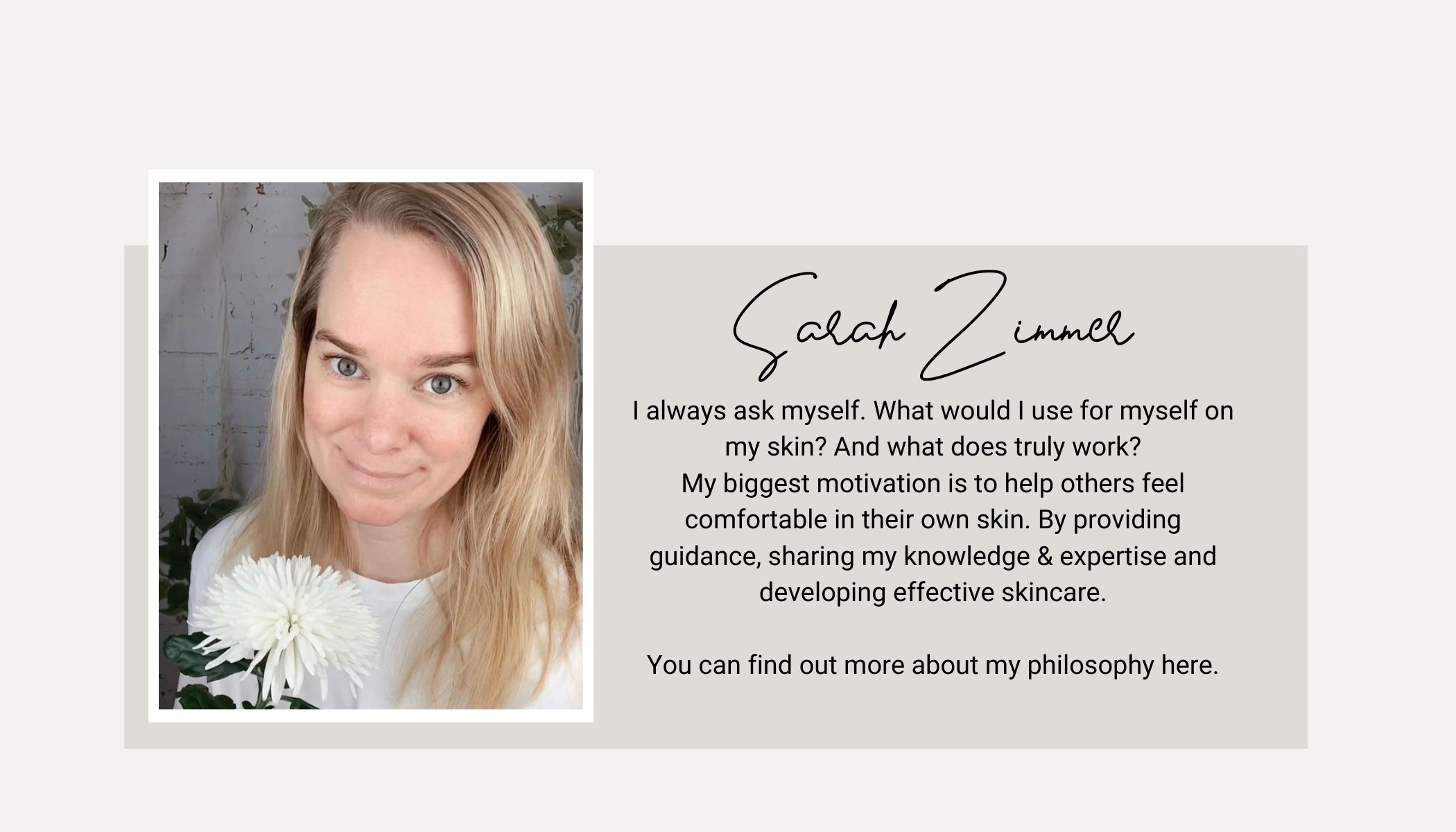Sonnenallergie: Ursachen, Symptome & Hautschutz
Sonnenallergie – Ursachen, Symptome und Behandlung
Während der ersten Tage im Urlaub am Meer oder Pool in einem sonnigen Land passiert es. Du bist der Sonne ausgesetzt. Und UVA Licht trifft auf Deine Haut: Juckreiz!
Die typischen Symptome eines Sonennallergie Ausschlags beginnen. Überall kleine Pickel an den betroffenen Hautstellen – an den Armen, am Dekolleté und an den Unterschenkeln. Die Haut ist gerötet, juckt und fühlt sich gereizt an.
Kommt dir das bekannt vor? Es gibt viele Gründe für Hautreaktionen auf die Sonne. Doch die Wahrscheinlichkeit ist groß, dass du unter einer sogenannten Sonennallergie, auch bekannt als polymorphe Lichtdermatose (PLD), leidest. Deine empfindliche Haut, die den Winter über von Kleidung geschützt war, reagiert auf die plötzliche Sonneneinstrahlung.
Schätzungsweise sind 10 bis 20 Prozent der europäischen Bevölkerung im Sommer betroffen. Die Hautreaktion tritt meist um das 30. Lebensjahr auf und betrifft Frauen viermal häufiger als Männer. Ich selbst hatte meine ersten Erfahrungen damit bereits mit Anfang 20.
Die verschiedenen Formen der Sonnenallergie
Eine Sonnenallergie kann sich plötzlich entwickeln und lässt sich leider nicht vollständig heilen. Je nach Typ kann sie sich in Form von Bläschen, roten Pickeln oder starker Hautrötung und Schwellung äußern. Bei vielen Betroffenen tritt auch starker Juckreiz auf. Der Ausschlag der Sonnenallergie erscheint meist 30 Minuten bis wenige Stunden nach Sonneneinstrahlung und kann sehr unangenehm sein. Manche Menschen entwickeln sogar Übelkeit, eine laufende Nase oder andere allergische Reaktionen.
Die häufigste Form der Sonnenallergie ist die idiopathische polymorphe Lichtdermatose (PLD) – ein Begriff, der im Grunde bedeutet:
- Idiopathisch – ohne bekannte Ursache
- Polymorph – mit unterschiedlichen Symptomen
- Lichtdermatose – eine durch Sonnenlicht ausgelöste Hautentzündung
Weitere Formen der Sonnenallergie:
- Mallorca-Akne – Ein Sonnenausschlag, der oft im Frühling nach längerer Sonnenpause auftritt und kleine, feste Knötchen oder Bläschen unter der Haut verursacht.
- Lichturtikaria (Sonnenurtikaria) – Eine Form von Nesselsucht, die durch Sonneneinstrahlung ausgelöst wird und stark juckende Quaddeln verursacht.
- Photoallergische Lichtdermatitis – Eine Hautreaktion, die durch bestimmte Stoffe (z. B. Kosmetika oder Medikamente) in Kombination mit Sonnenlicht ausgelöst wird. Diese allergische Reaktion ist oft schwer zu identifizieren, da die auslösenden Stoffe sehr unterschiedlich sein können.

Wie kannst du deine Haut vor Sonnenallergie schützen?
1. Langsame Gewöhnung an die Sonne
Wenn deine Haut auf Sonne reagiert, ist es wichtig, die Haut langsam an die Sonneneinstrahlung zu gewöhnen. Viele Menschen mit polymorpher Lichtdermatose (PLD) haben die stärksten Beschwerden im Frühjahr, wenn die Haut noch nicht an UV-A-Strahlung gewöhnt ist. Eine leichte Bräunung kann helfen, die Symptome mit der Zeit zu reduzieren. Ein plötzlicher Kontakt mit ungewohnt hoher UV-A-Strahlung kann Hautreaktionen wie den Ausschlag der Sonnenallergie auslösen (8, 9, 10).
2. Die richtige Sonnencreme verwenden
Um Hautreaktionen vorzubeugen, solltest du immer eine Sonnencreme mit hohem Lichtschutzfaktor (LSF) und starkem UVA-Schutz verwenden, da UV-A-Strahlen die Hauptursache für polymorphe Lichtdermatose (PLD) sind. Achte auf Sonnencremes mit dem UVA-Siegel und vermeide US-Sonnencremes, die oft unzureichenden UVA-Schutz bieten.
Vermeide:
Duftstoffe – Sie können phototoxische Reaktionen hervorrufen und Sonnenreaktionen verstärken.
Bestimmte UV-Filter (z. B. Octocrylen, Cinnamate) – Diese können bei empfindlicher Haut allergische Reaktionen auslösen.
Besser geeignet:
Breitband-UV-Filter, die gut verträglich und nicht reizend sind.
Antioxidantien wie Vitamin C, Vitamin E und Panthenol – Sie helfen, Entzündungen zu reduzieren und die Haut zu regenerieren.
Die Hautbarriere stärken für besseren Schutz
Eine starke Hautbarriere ist der beste Schutz gegen Hautreaktionen. Halte deine Haut gut durchfeuchtet und verwende entzündungshemmende Pflegeprodukte. Aggressive Seifen oder reizende Kosmetika solltest du meiden. Es gibt immer mehr Hinweise darauf, dass das Hautmikrobiom eine Rolle bei Sonnenreaktionen spielt. Bestimmte Bakterien auf der Haut können unter UV-Licht entzündliche Stoffe produzieren.
Ob die Einnahme von Probiotika oder der gezielte Einsatz von hautfreundlichen Bakterien helfen kann, ist noch nicht abschließend geklärt. Aber es ist sinnvoll, die guten Bakterien auf der Haut zu schützen – etwa durch den Verzicht auf aggressive Reinigungsmittel und unnötige Antibiotika.
Zusätzlich ist bekannt, dass niedrige Vitamin-D-Werte mit polymorpher Lichtdermatose (PLD) und anderen sonnenbedingten Hautreaktionen zusammenhängen. Ein Vitamin-D-Präparat kann sinnvoll sein.
Was tun, wenn eine Sonnenreaktion auftritt?
Falls du unter starken Hautreaktionen leidest, solltest du auf Reisen immer Antihistaminika und Hydrocortison-Creme dabeihaben. In schweren Fällen kann dein Arzt mit dir über die vorübergehende Einnahme von oralen Kortikosteroiden sprechen.
Eine überraschende positive Seite der Sonnenallergie
Es gibt auch eine gute Nachricht: Menschen mit Sonnenallergie haben oft ein aktiveres Immunsystem, was das Risiko für Hautkrebs senken könnte.
Weitere Hautprobleme im Sommer
In den kommenden Wochen werde ich mehr über andere Sommer-Hautprobleme schreiben, die deinen Urlaub vermiesen können – darunter Hautreaktionen durch Kosmetika oder Medikamente, die einer Sonnenallergie ähneln.
Falls du Fragen hast, schreibe uns gerne an support@nayaglow.com!
Relevante Artikel:
Schütze deine Haut vor der Sonne
Raubt mir Sonnencreme Vitamin D?
Warum du deine Haut vor UVA schützen solltest
Die Wissenschaft hinter chemischen vs. mineralischen Sonnencremes










Hinterlasse einen Kommentar